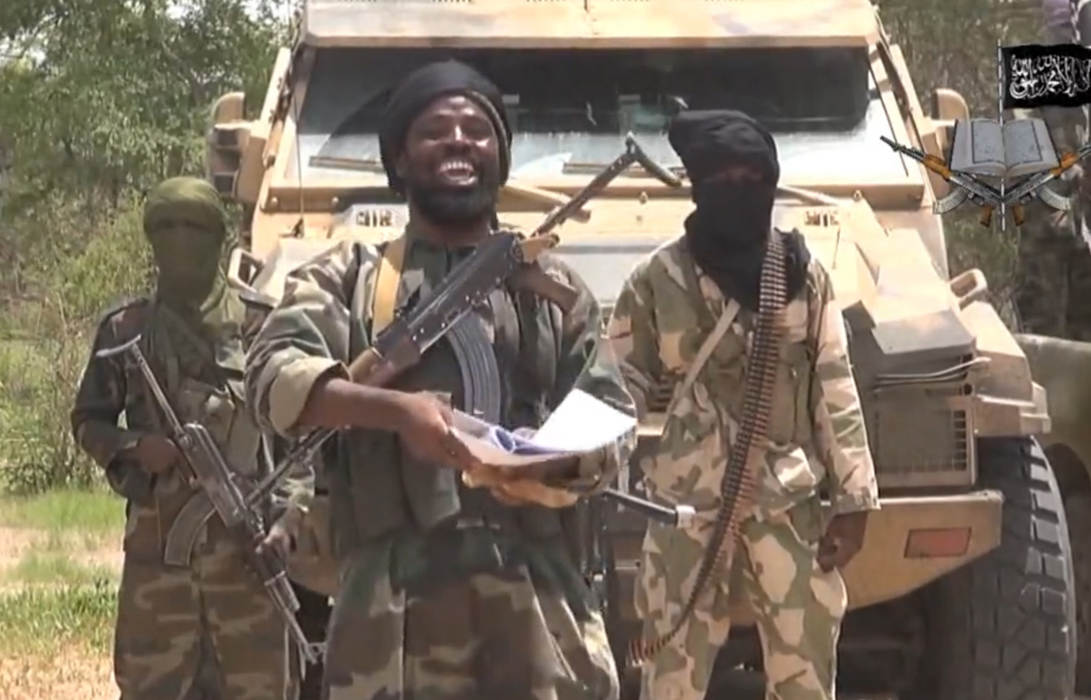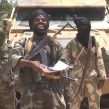
Boko Haram’s Emerging Caliphate in Nigeria: Will Maiduguri Fall?
Publication: Terrorism Monitor Volume: 12 Issue: 18
By:

On August 29, several hundred Boko Haram militants stormed the town of Gwoza in Nigeria’s northeastern Borno State. Government buildings were taken over and churches destroyed, while local inhabitants were told that the town will be governed according to Shari’a (Sahara Reporters, August 12). A Boko Haram leader, possibly using the pseudonym of Boko Haram’s leader since 2010, Abubakr Shekau, then issued a video stating that Gwoza was now an “Islamic State” that “has nothing to do with Nigeria anymore” (Africa Examiner, August 24). Several weeks earlier, this Shekau also declared his “support” for the leader of the Islamic State (formerly known as the Islamic State of Iraq and Syria or ISIS), Abu Bakr al-Baghdadi, among other jihadist leaders (Vanguard [Lagos], July 13).
Within two weeks of the Gwoza attack, Boko Haram also took control of Buni Yadi and Bara in Yobe state, Madagali, Gulak, Michika and Bazza in Adamawa state, Banki, Gamboru-Ngala, Ashigashiya, Kerawa, Dikwa, Damboa and Bama in Borno State, and several areas along the border with Cameroon. In total, an estimated ten towns in Yobe, ten towns in Borno and five towns in Adamawa were captured by Boko Haram in September 2014 (AFP, September 18). Nigerian military personnel and government officials in Borno have fled to Maiduguri, Borno’s capital, and other states, while many of the traditional rulers, or amirs, have fled to Nigeria’s capital of Abuja. These amirs abandoned their palaces, which in some cases Boko Haram occupied and enslaved the amirs’ wives (Nigerian Tribune, September 6).
Boko Haram’s capture of towns on Borno’s perimeter and in Yobe and Adamawa states as well as in Cameroon is likely intended to isolate Borno from the rest of Nigeria and the neighboring countries of Niger, Chad and Cameroon. Borno was the birthplace of the Boko Haram movement in 2002 and is the homeland of the Kanuri people, who comprise the majority of Boko Haram members and leaders. Boko Haram will likely try to establish its own Islamic state roughly within the boundaries of present-day Borno State.
Boko Haram’s early governance in Borno conforms to the plans that Shekau’s former spokesman, Abu Qaqa, articulated to the Nigerian security forces during his interrogation in 2012. Abu Qaqa said Boko Haram wanted to “to reduce the powers of the sultan to traditional rulership functions while all religious authority would be vested with [Boko Haram’s] leaders,” and “any ruler who would obstruct [Boko Haram’s] plans would regret his action” (This Day [Lagos], March 8, 2012). Abu Qaqa meant that Boko Haram believes Nigeria’s traditional religious leaders, such as the sultan of Sokoto and amirs, are illegitimate and deserve to be killed because they allow the mixing of Islam with “infidel” systems of democracy, Western education and secularism. Therefore, the sultan and amirs may only be called tribal leaders, or chiefs (serkin), while Boko Haram-approved religious leaders will take over religious positions as sultans and amirs. [1]
In executing this strategy, Boko Haram has attempted to assassinate Nigeria’s traditional religious leaders since Abubakr Shekau announced the start of the “jihad” in 2010. Most recently, in May 2014, Boko Haram killed the amir of Gwoza while he was on the way to the funeral of the amir of Gombe (the amirs of Askira and Uba were also with the amir of Gwoza but survived the attack) (Premium Times [Abuja], May 30). Boko Haram took over Gwoza in August and in September took over Bama, a city of over 200,000 people, and expelled the amir of Bama (Leadership [Abuja], September 14). Boko Haram has since selected its own members to replace the amirs of Gwoza and Bama, including Muhammad Danjuma in Bama, who is reportedly known for his brutality. Boko Haram also replaced the amir of the historic Kanuri capital of Dikwa and the town of Damboa with Boko Haram-approved amirs (Vanguard [Lagos], May 31; Abusidiqu.com, August 13).
Rather than setting up administrative bureaucracies in Borno, Boko Haram will likely allow its amirs to govern according to their textual Salafist interpretation of Shari’a Law and its militants in areas under Boko Haram control to serve as the enforcers of the amirs’ dictates. However, civilians may be left to manage their day-to-day affairs based on Islamic principles and Kanuri tradition. Boko Haram’s apparent hands-off governance system stands in contrast to the reputation of the Nigerian security forces, who are feared in many parts of Borno for their occasional abuse of power and intrusions in the everyday lives of civilians. Boko Haram, though feared for killing and expelling civilians, especially Christians, and kidnapping young men and women, is not known for setting up government offices, ministries and departments like al-Qaeda in the Islamic Maghreb (AQIM) and al-Qaeda in the Arabian Peninsula (AQAP) did when they controlled parts of Mali and Yemen in 2012 and 2010.
For Boko Haram to sustain its control over territories in Borno in the long term, it will likely need to capture Maiduguri, located in the center of Borno. Such a development would be as symbolic and strategic a victory for Boko Haram as ISIS capturing Mosul in northern Iraq from the Iraqi government in June 2014. Moreover, it would show Nigerians that Boko Haram is not only a fringe movement on Nigeria’s northeastern periphery, but that it can control a state of the Federal Republic of Nigeria.
Boko Haram’s several thousand armed militants may not have the strength in numbers to take Maiduguri. However, the militants’ probable strategy would be to attack the city in waves using forcibly recruited foot soldiers and weapons stored in towns outside Maiduguri and coordinate with cells in parts of this province that have long been sympathetic to Boko Haram. If Boko Haram could give the impression that it was invading and winning, including by distributing pamphlets and videos of beheadings of soldiers for psychological effect, it is possible that some soldiers and thousands of civilians would flee. This would leave the city – or at least parts of it – for Boko Haram’s taking.
Boko Haram began gaining momentum around Maiduguri in early September, especially with its attack on the market town of Mainak, to the northwest of the capital on September 18 (Daily Trust [Abuja], September 19). Previously, Boko Haram’s encampments around Maiduguri were mostly to the southwest, northeast and northwest of the city. However, on September 22, Nigerian and Cameroonian sources reported the death in Konduga, just south of Maiduguri, of Bashir Muhammad, who was using the pseudonym of Abubakr Shekau to issue statements on behalf of Boko Haram. The military’s victory over Boko Haram in Konduga and the death of Bashir Muhammad could signal a morale boost for Nigeria and deflate Boko Haram’s propaganda and lead to factionalization of its ranks (Sahara Reporters, September 22).
With or without “Shekau,” the battle for Maiduguri will likely become a turning point for the Nigerian Islamist group: Either the Nigerian government will defend the city and roll back Boko Haram in Borno, or Boko Haram will infiltrate the city and further cement its budding Islamic state.
Jacob Zenn is an analyst of African and Eurasian Affairs for The Jamestown Foundation and consultant on countering violent extremism, international law of freedom of association, socio-cultural analysis for geospatial visualization.
Note
1. Muhammad Sani Umar, “The Popular Discourses of Salafi Radicalism and Salafi Counter-Radicalism in Nigeria: A Case Study of Boko Haram,” Journal of Religion in Africa (Vol. 42, No. 2, 2012), pp. 118–44.





